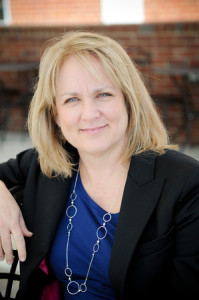Nigerian kidnapping focuses world attention on a massive global issue
The shocking kidnapping of 270 Nigerian schoolgirls has turned the world’s attention to human trafficking. Every day, in every country, people’s lives and futures are stolen from them. There is no easy answer, no quick fix. But we can take advantage of the opportunity to educate others on the widespread horror of modern-day slavery and to inspire them to join in efforts to change cultures for women around the world.
By MARSHA WALLACE
On Mothers’ Day, safe amidst my own family, my thoughts often turned to the 270+ women in Nigeria who were without their daughters.
The Islamist terrorist group Boko Haram may have many motives and goals in this shocking and audacious act. Although they have said they will sell the girls into slavery, that may not have been the primary goal.
Still these stolen girls — ripped from their families and their futures — are the current face of human trafficking in the world. In the US, there is a growing call to action, for the country to “do something”.
Read current news and developments on the Nigerian kidnapping
But the sad reality is that human trafficking goes on everyday, in every country. The US State Department estimates that at any given time there are 27 million enslaved people in the world. They are sold as sex workers, forced laborers and sometimes their organs are harvested for sale. Up to 80 percent of women and girls who are trafficked outside of their native countries are sold as sex slaves.
Victims and the type of slavery they are taken for vary by region, according to the United Nations. But across all regions, two-thirds are children.
-
In Africa, 68 percent of victims are children. Forty-nine percent are sold for forced labor; 36 percent into the sex trade.
-
In Europe and Central Asia, 82 percent of trafficking victims are adults, only 16 percent are children. Sixty-two percent are sold for sex slaves; 31 percent for forced labor.
-
In the Americas, 73 percent of trafficked individuals are adults; 27 percent are children. Fifty-one percent sold as sex slaves and 44 percent as forced laborers.
-
In Southeast Asia and the Pacific region, 61 percent are adults, 39 percent are children with 44 percent sold into sex trade and 47 percent into forced labor.
Dining for Women supports grassroots organizations that work to empower women and girls in the most impoverished parts of the world. Often these organizations are fighting the underlying issues that hold women and girls back and contribute to a climate and a society where human trafficking can thrive.
Girls fall into the hands of human traffickers in many ways. Sometimes they are kidnapped, sometimes they are lured by never-to-be met promises, sometimes they are sold by their own families. No matter how it happens, it is always the result of desperation and a lack of hope.
Voices are now calling out for us to “do something!” But what can we do?
As an organization, we support programs like Somaly Mam, Her Turn, Lotus Outreach, Prevent Human Trafficking and Love 146 that focus on the fight against human trafficking. Through them, we have learned that — like most culture wars — this one cannot be won quickly or easily. We fight it every day by attacking the underlying causes that allow it to flourish — poverty, lack of education, lack of opportunity, gender inequality. We believe that providing education for girls and economic opportunities for women will empower them to be change agents, to strengthen the core of their families and communities, to change their societies.
It is slow work. Today, the world’s attention is on this issue; if we can hold it after this crisis no longer commands headlines, we will have a greater ability to help these women and girls to overcome the inequality and ignorance that allows trafficking to flourish. That would really be doing something.
About the author
Marsha Wallace is the co-founder of Dining for Women. She is currently a member of the Board of Directors, a speaker and passionate advocate for the rights of women and girls around the world.

